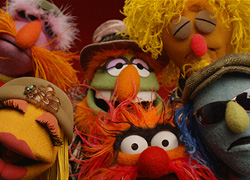ryhoyarbie
Well-Known Member
- Joined
- Oct 2, 2002
- Messages
- 3,565
- Reaction score
- 122
I was in college going to my 9:30 class in the morning, my second class, and the teacher came into the room and said the World Trade Towers have been hit. I was like "okay" not really thinking what that ment. Then I went home, turned on the television, and watched the footage of the planes crashing into the towers.
*On a side note, with all this "remember September 11th" stuff, does anybody else talk about remember Pearl Harbor, or remember "D-day" of WW2, etc. I don't think those things get talked about like the September 11th attacks. I guess because it's more recent.
ryan
*On a side note, with all this "remember September 11th" stuff, does anybody else talk about remember Pearl Harbor, or remember "D-day" of WW2, etc. I don't think those things get talked about like the September 11th attacks. I guess because it's more recent.
ryan

 Welcome to the Muppet Central Forum!
Welcome to the Muppet Central Forum! Back to the Rock Season 2
Back to the Rock Season 2 Sesame Street Season 54
Sesame Street Season 54 The Muppets Mayhem premieres
The Muppets Mayhem premieres Bear arrives on Disney+
Bear arrives on Disney+ Sam and Friends Book
Sam and Friends Book